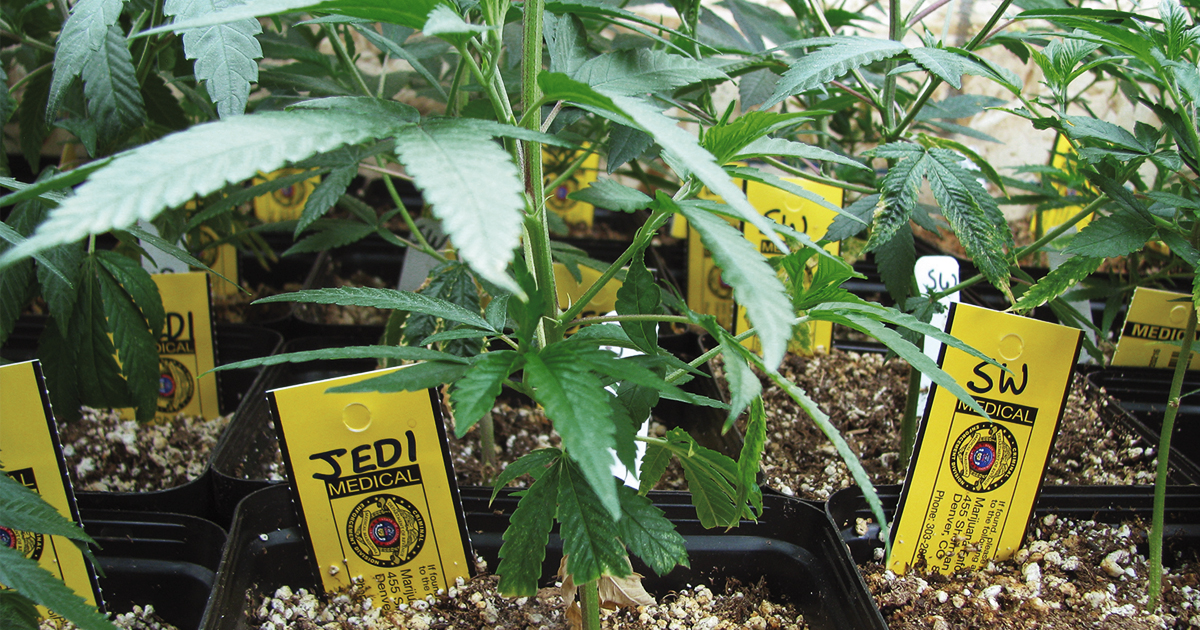Washington’s Canna-Tech Troubles Once Again Point to MJ Freeway

On July 31, the state of Washington agreed to extend its contract with MJ Freeway for state Liquor Control Board’s marijuana traceability program. The contract runs through September 30.
A three-month extension to a state contract such as this wouldn’t ordinarily rate a headline, but the Marijuana Traceability Program in Washington is no ordinary contract. The program and MJ Freeway have been fraught with glitches, hacks and other problems, as reported by Freedom Leaf, for years.
MJ Freeway started with such great promise. It was one of the first seed-to-sale tracking systems to enter the market. The founders used their experience in the banking industry and in technology to create a tracking and point-of-sale system that could be employed by local businesses and state agencies. They used their marketing savvy to secure several state contracts and become a market leader.
The troubles began with hacks into MJ Freeway’s system. Problems started showing up in the underlying code, not just causing minor annoyances or occasional glitches, but full-on system-wide shutdowns.
Some called on the Liquor and Cannabis Board (LCB) to fire MJ Freeway and implement a different system, yet Washington refused to give up on the company and its Leaf Data Systems marijuana traceability system. Problems continued to plague the tracking system, as we followed up in 2018.
Then, on July 23, 2019, the LCB released this new advisory to state licensed cannabis businesses:
“Effective immediately, the LCB will allow licensees, labs and integrators flexibility to develop workarounds to problems directly associated with the lab test data and manifest information that remain unresolved by recent fixes to the system.”
In other words, this system is a hot mess that we still can’t figure out how to fix, so get creative and keep your own records. And do a good job because in the end your business and your licenses to operate depend on it.
A History of Hacks, Delays, Glitches and Risks
Washington’s Office of the Chief Information Officer (OCIO), which is responsible for overseeing implementation of the state’s marijuana traceability program, contracted with Stellar Associates, LLC, to perform monthly quality assessments. On July 24, the OCIO’s report for the June 2019 review period stated, “There has been a significant increase in the risk noted within several categories. The Overall Project Health and Environment, Time Management and Cost Management have increased to high risk along with Quality Management and Stakeholder Management.”
The only real positive note in the report was that Project Integration Management was rated low risk, though it says that the risk associated with that area “has increased slightly as the number of overdue tasks continues to build.”
In spite of it all, Washington is keeping its faith in the Leaf Data Systems marijuana traceability system engineered by MJ Freeway.
Remaining categories in the report – Scope Management, Human Resource Management, Communications Management, Risk Management and Procurement Management – were assessed at moderate risk.
These continuing problems and delays in implementation are themselves causing serious disruptions to cannabis businesses, which could hurt consumers by limiting access to goods. For example, the report pointed out, “After analyzing the conditions, LCB determined that the integrators who reported they were not ready and needed more time for release represented more than 60% of the licensees. Implementing release as planned in early June with less than 40% of the licensees reporting they were ready for the changes coming to the production environment would knowingly interrupt reporting on the production, transportation and sale of cannabis and cannabis-infused products.”
It didn’t help that the LCB moved its entire headquarters, including its computer equipment, to a new location in June. But that’s not what caused these problems.
The Problem with Seed-Sale Tracking Systems
Photo by Fathom Systems Inc.
Legislators and law enforcement were sold on the idea of seed-to-sale tracking as a way to prevent diversion. The idea that simply hanging an RFID tag on a plant would somehow allow people to track the individual flowers that grow on that plant is laughable.
These seed-to-sale tracking systems are basically large sets of databases that growers, processors, distributors and retailers can access into and to which they’re required to enter information. There’s no one looking over their shoulder or checking – so much of it is on the honor system – so all that really counts is people enter their data in timely and consistent manner.
Since these are big, complicated systems, it’s possible to feel some sympathy for MJ Freeway. On the other hand, none of the other companies in this space, like BiotrackTHC and Franwell’s Metrc, are experiencing the sorts of disruptions and, for lack of a better word, failures that MJ Freeway has been responsible for.
It got worse. On July 31 – the day that the LCB extended its contract with MJ Freeway – the marijuana traceability project issued a status report showing the overall project status was code red, meaning “high risk and we need help to mitigate it.” The project met its July 15 due date for a new release, yet “there were many significant software, database and architectural issues with the release that negatively impacted our customers.”
In spite of it all, Washington is keeping its faith in the Leaf Data Systems marijuana traceability system engineered by MJ Freeway, which merged with MTech Acquisition Corp. in June.
MJ Freeway co-founder Amy Poinsett stepped down as CEO of MJ Freeway in May 2018 and became board chair, then left the company this past June. Their other co-founder, former president/COO Jessica Billingsley, is now CEO of the newly formed company, the Akerna Corporation (NASDAQ:KERN). Even with all of these corporate machinations, Washington still refers to the company as the much-maligned MJ Freeway.
RELATED
MJ Freeway’s Seed-to-Sale Software Dilemma
Freedom Leaf Interview with BiotrackTHC’s Patrick Vo
Seed-to-Sale Tracking: How It Works

